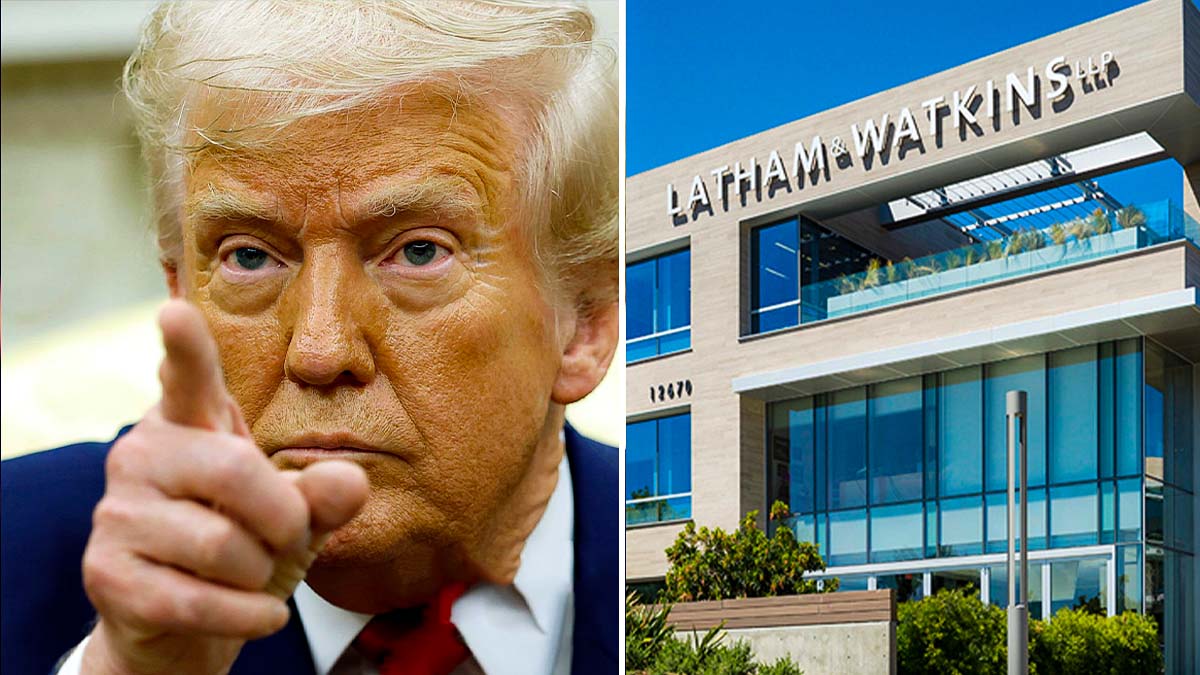The claim is that top law firms like Latham & Watkins and Simpson Thacher are rushing to strike deals with the Trump administration to avoid sanctions.
This issue ties back to recent moves by the Trump administration to put pressure on law firms seen as opposing its agenda. The gist is that these firms are offering millions in free legal services to align with White House priorities, such as supporting certain policies or avoiding being viewed as adversaries.
🇺🇸 TOP LAW FIRMS BEND THE KNEE TO AVOID TRUMP SANCTIONS
Elite law giants Latham & Watkins and Simpson Thacher are rushing to cut deals with Trump’s team, trading millions in free legal services to escape business restrictions.
The administration’s hardball strategy has powerful… https://t.co/9RJ5azsRaN pic.twitter.com/ZO6GQBNwfq
— Mario Nawfal (@MarioNawfal) April 11, 2025
In return, they aim to dodge executive actions that could limit their business, like restrictions on government contracts or access to federal officials. This isn’t entirely new; governments often flex their muscle to influence the private sector, but the specificity and scale here draw attention.
On one hand, it’s understandable why firms might cooperate. Big names like Latham & Watkins and Simpson Thacher handle everything from corporate mergers to high-profile lawsuits. Any threat to their operations, such as losing government contracts or facing sanctions, could hit their profits hard.
Offering free legal services, while costly, is a small price to pay compared to upsetting the government. Besides, these firms already do pro bono work for PR and ethical reasons, so this could just be a strategic shift, less “bending the knee” and more a calculated move to stay in the game.
But there’s another side. This kind of pressure could chill independent legal representation. If firms feel forced to align with the administration’s goals, they might hesitate to take on clients or cases that challenge the White House, like those involving civil rights or election disputes.
This becomes a problem when you consider the role of independent legal counsel in balancing government power. It could easily tilt the playing field, especially if only select firms get a pass while others, those that previously worked against Trump, bear the full weight of executive actions.
The power dynamics in Washington, D.C., are always shifting, but calling this outright surrender is probably an overstatement. These firms aren’t just caving, they’re negotiating, using their clout and resources.
Still, it doesn’t look great: big firms cutting deals while smaller or less influential ones might get sidelined. And who’s really calling the shots? It’s less about one person and more about a system where access and influence still drive outcomes.
